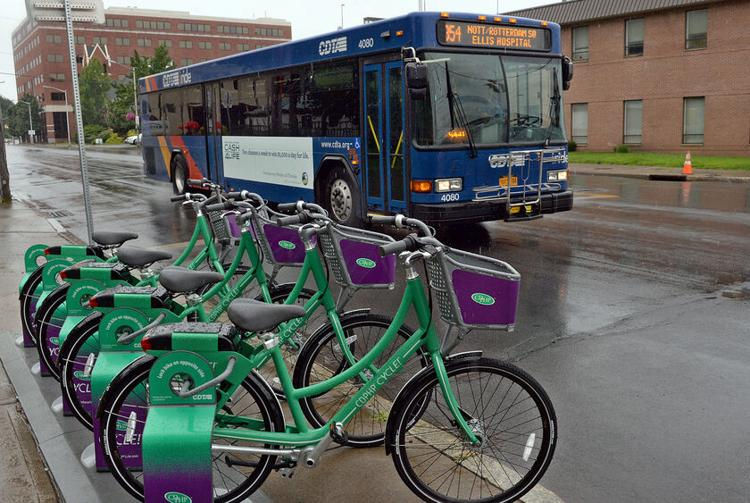New York State Investment in Shared Mobility Leads to 14x in Additional Funding
- Michael Galligano
- Apr 23, 2024
- 2 min read
Updated: May 7, 2024
Creating long-lasting and effective transportation systems requires combining private, public, nonprofit, and community input for not only the planning process, but also implementation. From 2014 to 2018, Shared Mobility Inc (SMI) partnered with NYSERDA to educate stakeholders on the benefits of shared and electric transportation options to help foster investment and create new services. This project, Shared Mobility Networks of New York, resulted in SMI working with over 15 nonprofit, transit, and municipal partners across New York. Key results from the project include the following:
Every dollar NYSERDA spent on this project resulted in $14 of outside investment from public, private, and other sources—an additional $18.8 million in funding.
New bike share programs across the state launched and expanded, resulting in 15 times more ridership.
Most expansion sites were located in disadvantaged neighborhoods, increasing access in transportation deserts where traditional public transit services lacks.
Over 550 gas vehicles were removed from the streets, and over 21,000 metric tons of CO2 were avoided because of new services created with assistance from this project.

Some lessons from working with private, community, public, and transit entities in shared mobility include:
All sectors require different approaches to building trust in new services and technologies. This may require different experts within and outside of your team's dynamics.
Transportation mode shifts and changing habits in the community will not happen overnight. Incremental wins will lead to long-term and eventually generational change in behavior.
Electric car share and micromobility are both new transportation services. Understanding this, public sector partners must adjust to navigating uncertainties while supporting the programs.
Public transit agencies must fully support these concepts and help usher them in as part of their services in marketing, promotion, and, eventually, financial support.
Locally run and community controlled shared mobility services may be the only option for smaller, less dense and disadvantaged communities. For profit services shy away from servicing these areas due to profitability.
We believe that access to affordable and clean transportation is a human right. Public funding dedicated to shared mobility services have proven to be a great investment as the impacts speak for themselves.
For more information on this project, click HERE.




Comments